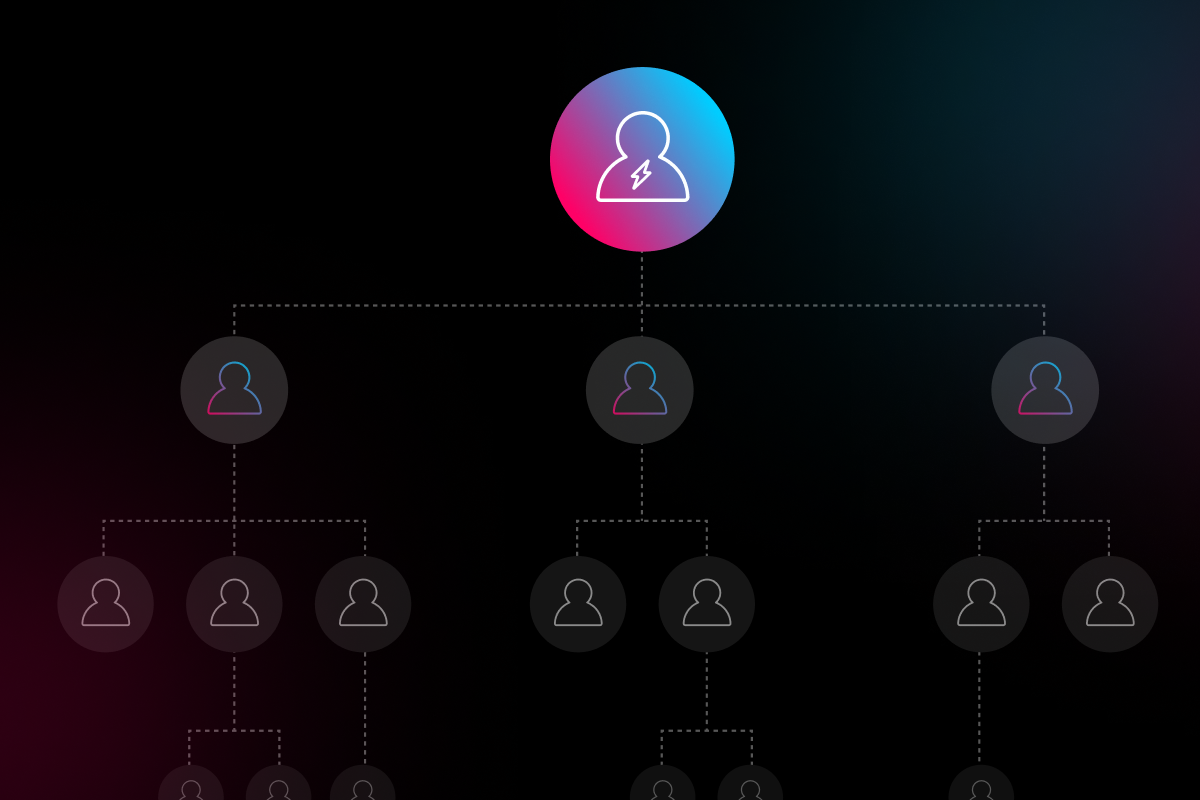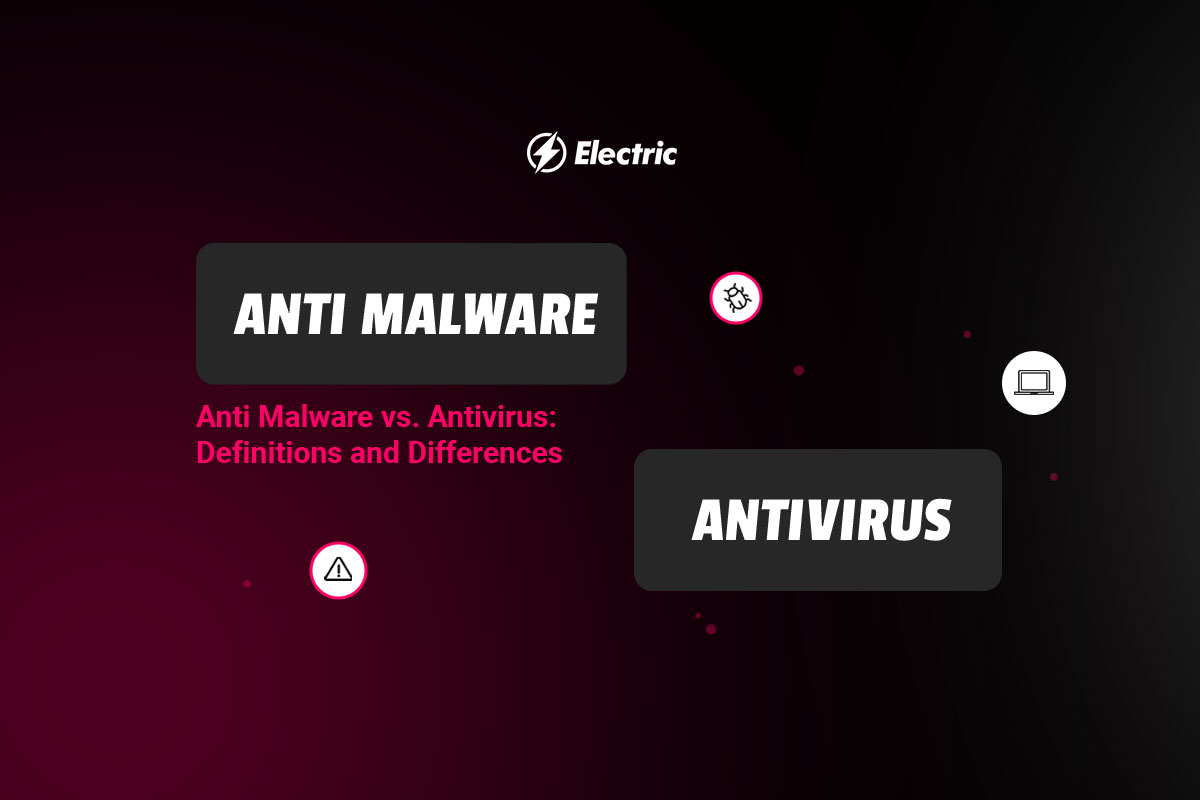
Cybersecurity should be at the forefront of all businesses, both big and small. If your business data is hacked, the consequences can be catastrophic – you potentially stand to lose a lot of data and may be forced to pay hefty ransoms to get it back.
A hacker strikes approximately every 39 seconds. Cyberattacks are steadily increasing every year, and small and medium sized businesses are particularly vulnerable if operating with limited resources or a lack of IT expertise.
As a result, some of the most burning questions that business leaders ask themselves are, what is the best way to protect my IT systems from malicious attacks? What is the difference between anti malware and antivirus, and how can this software help safeguard sensitive data? This post will shed light on what anti malware and antivirus are, how they differ, and ultimately, why you need their protection.
What is Anti Malware Software?
Anti malware is software that safeguards a computer from malware such as worms, spyware, and adware, all of which are designed to hack into devices. This software scans the system for all forms of malicious software that manage to reach the computer. It can update its rules faster than an antivirus can, meaning that it’s the best protection against new malware that you may come across while browsing the web. Anti-malware employs three different techniques for malware detection, namely, behavior-based, signature-based, and sandboxing.
What Is Antivirus Software?
Antivirus software is used to avert, scan, detect, and remove viruses from a computer. Upon installation, antivirus software looks at data – files, web pages, applications, software – traveling over your device’s network. It looks for known threats and monitors the behavior of all programs, flagging any suspicious behavior. This software seeks to block and remove malware as soon as possible.
Comprehensive protection by an antivirus helps protect your hardware and files from malware such as Trojan horses, worms, and spyware, and may also offer additional protection such as website blocking and customizable firewalls. Because of the costly consequences of malware attacks, finding and implementing the best antivirus for your business should be a top priority.
Anti Malware vs. Antivirus: What is the Difference?
Before we dive into the topic of interest here, let’s first define the difference between malware and viruses. A virus is a specific malware program that has the capability of replicating itself and spreading throughout a system. In contrast, malware is an umbrella term used to describe all types of malicious software such as viruses, Trojans, rootkits, adware, spyware, and ransomware. What this means is that all viruses are malware, but not all malware are viruses.
Now that we’ve gotten that out of the way, here is an outline of the differences between anti malware and antivirus:
- Antivirus software is designed to detect and remove viruses and other malicious software from a system, whereas anti malware is a program that safeguards the system from all sorts of malware, including Trojans, worms, and adware.
- While both anti malware and antivirus are utility programs designed to protect your system from all kinds of malicious software, antivirus software is designed specifically to protect your digital environment against more established threats, such as viruses, worms, and Trojans. On the other hand, anti malware typically safeguards the system against newer and more complex programs to strengthen system security.
- Antivirus is a flagship security software installed on computers and mobile devices to protect them from getting infected. Anti malware primarily focuses on proactive protection against newer and more sophisticated online threats.
Anti Malware vs. Antivirus vs. Anti Spyware
Antivirus software is designed and developed to protect computers from viruses, spyware, keyloggers, rootkits, and worms. It scans, detects, and removes malicious software from your computers. Anti malware, on the other hand, is software that protects users from the latest, currently in the wild, and even more sophisticated threats. Finally, anti spyware is a security software that detects, removes, and protects your device from unwanted spyware programs.
A spyware program is a type of malicious software designed to track the activity of an online user and gather information. It is used to steal valuable information without a user’s knowledge. Among the techniques threat actors use to infect your PC include phishing, spoofing, Trojans, software bundles, and misleading marketing. Fortunately, anti spyware software can help you remove and detect spyware.
Why Are Anti Malware and Antivirus Important for Small Businesses?
Cyber threats are continuously evolving. As new ways to fight cyber threats emerge, cybercriminals are also coming up with new sophisticated ways of fashioning attacks. An increasing number of cybersecurity attacks are specifically targeted towards businesses, both big and small, with ransomware especially being a cause for concern. According to Statista, there were 304 million ransomware attacks globally in 2020 alone. These attacks are thought to have cost businesses approximately $20 billion.
That said, anti malware and antivirus can help small businesses protect themselves from such attacks. Here are some benefits that small businesses accrue from using this software:
- Virus and malware protection: Viruses and malware consistently work to penetrate vulnerabilities inside a business’s system. For instance, entities probe networks regularly to determine what exposures are available to penetrate. By installing antivirus and anti malware on every single device connected to the internet, these programs will combat open vulnerabilities that threat actors look to expose.
- Protection against data thieves: Data thieves are lurking everywhere to steal data from businesses. In fact, small businesses are the most targeted due to fewer security protocols and lack of resources. Anti malware and antivirus software can detect and remove viruses and malicious software that threat actors use to gain access to your network.
- Increased computer lifespan: Antivirus and anti malware software tackle more than just viruses and malicious software. They can also help lengthen the lifespan of your computer. For instance, when computers aren’t attacked by malicious software, they tend to remain in pristine condition for longer.
- Lower business costs: Another perk of incorporating anti malware and antivirus throughout your business is that it lowers operational costs, both in the short and the long term. For example, this software will allow employees to keep working instead of fussing over the security of the system.
Electric can Improve Cybersecurity for Your Small Business
With Electric’s team of experts that manages application, network, and device-level security, system breaches are history. We offer various security solutions, security management, and best-practice recommendations that keep your data protected. Contact us to learn more about our cybersecurity solutions.



